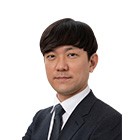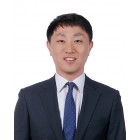Video
Publications
Issue Briefs
Publications | Issue Briefs
Worth the Squeeze: A Conditions-based Analysis of South Korean Public Support for Nuclear Deterrence
Peter K. Lee, Kang Chungku
10,3252025.05.28
How badly do South Koreans want nuclear weapons? The 2025 Asan Poll found a record 76.2% public support for acquiring an indigenous nuclear weapons capability and 66.3% support for the redeployment of U.S. tactical nuclear weapons to the Korean Peninsula. One of the main critiques of such findings is that the headline figures misrepresent the public’s true commitment to nuclear armament or redeployment. That is, support is expected to dramatically drop when people are asked to consider the potential costs of acquiring nuclear weapons. This Asan Issue Brief introduces the results of a series of conditions-based questions to test the robustness of South Korean public commitment to enhanced nuclear options. The five conditions include a willingness to face international sanctions, risk the withdrawal of U.S. forces from the Korean Peninsula, build storage facilities and conduct nuclear tests, increase defense cost-sharing with the United States, and host tactical nuclear weapons in their city or province.
The Issue Brief finds that a majority of the South Korean public is now committed to both nuclear armament and nuclear redeployment even in the face of four out of five potential cost conditions due to record-high threat perceptions and concerns about the U.S. security commitment. The high headline support for nuclear armament (76.2%) and nuclear redeployment (66.3%) means that even substantial drops in support no longer fall below majority support. However, the South Korean public is most sensitive to specific and tangible potential costs that have a direct impact on them, including hosting deployment of weapons as well as storage and testing facilities in their locality, whereas abstract and unspecified costs only have a modest impact on commitment.
The views expressed herein do not necessarily reflect the views of the Asan Institute for Policy Studies.

Peter K. Lee
Research Fellow
Dr. Peter K. Lee is a research fellow in the Center for Regional Studies at the Asan Institute for Policy Studies. His research focuses on Indo-Pacific security and US alliances and partnerships. Previously, he was a research fellow in the Foreign Policy and Defence Program at the United States Studies Centre at the University of Sydney and also a Korea Foundation research fellow at the University of Melbourne. His recent publications include “An Indo-Pacific Allied Shipbuilding Enterprise” (Asan Report, December 2024) and “Should South Korea Join AUKUS Pillar 2?” (Asan Issue Brief, December 2024), “Reciprocating Trust and Reconciling Ambitions in ROK-U.S. Defense Industrial Cooperation,” (Asan Issue Brief, May 2024), and “Comparing Allied Public Confidence in U.S. Extended Nuclear Deterrence,” (Asan Issue Brief, February 2024). Dr. Lee received his Ph.D. in strategic studies from the Australian National University, and his Master of International Relations and B.A. with First Class Honours in political science from the University of Melbourne.
view more
Kang Chungku
Principal Associate, Deputy Director, Assistant to the Supervisor of Research and Planning
Mr. Kang Chungku is a principal research associate working on public opinion and data analysis at the Asan Institute for Policy Studies. Mr. Kang has led the Asan Institute’s Annual Survey series, “South Koreans and Their Neighbors,” for the past decade and he also undertakes regular surveys into key foreign policy issues facing South Korea. His recent publications include “The 2024 U.S. Elections and Outlook for U.S. Allies” (November 2024) and “Comparing Allied Public Confidence in U.S. Extended Nuclear Deterrence” (February 2024). He also supports the Institute’s researchers with quantitative data analysis. Prior to joining the Asan Institute, he was a research assistant at the Korea Dialogue Academy in Seoul. His research interests include public opinion and its dynamics, quantitative research methods, survey design, and statistical data analysis. Mr. Kang received his B.A. in English and M.A. in Sociology at Korea University.



